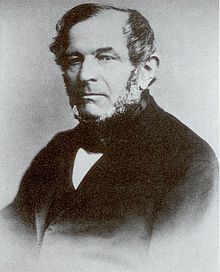|
Georg Ludwig Kriegk
 Georg Ludwig Kriegk (February 25, 1805 – May 28, 1878) was a German historian and archivist born in Darmstadt. He studied history and philology at the Universities of Heidelberg and Giessen, and from 1825 spent several years working as a tutor to a patrician family in Frankfurt am Main. In 1834 he obtained his doctorate from the University of Marburg, subsequently working as a private scholar in Frankfurt. Here he was a member of several learned societies, giving lectures in the fields of ethnology, geography and history. Beginning in 1848 he taught classes at the municipal high school in Frankfurt, also serving as chairman of the school association. In 1863 he was appointed archivist to the city of Frankfurt, a position he maintained until his retirement in 1875. Kriegk was an avid archaeologist, conducting excavations of the ancient Roman settlement of Nida, located in the present-day district of Heddernheim. Written worksKriegk was a prolific author, publishing works on the history of medieval city republics, books on the history of Frankfurt am Main, and writings about Frankfurt native Johann Wolfgang von Goethe. In addition, he edited the first edition of Friedrich Christoph Schlosser's Weltgeschichte für das deutsche Volk (World History for the German People). A few of his better known publications are as follows:
References
|